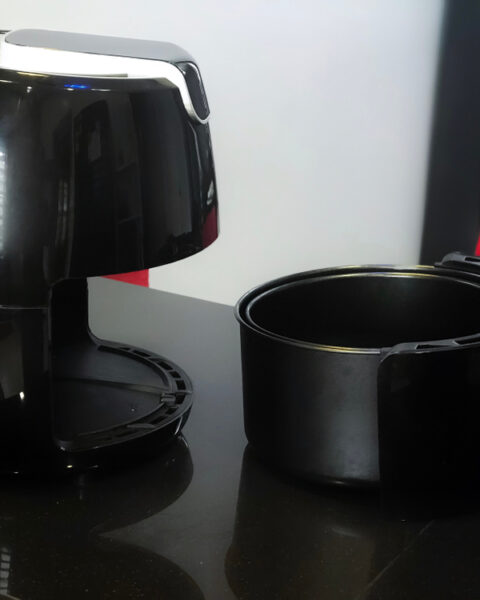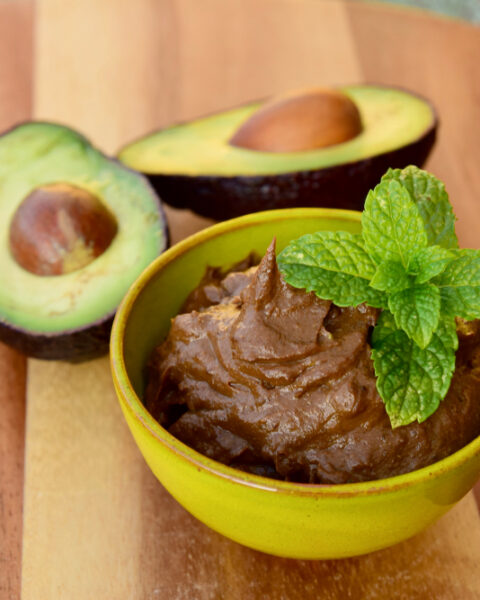Gut health and fitness are closely tied, and one of the simplest ways to nurture both is by adding a few fermented foods to your routine. These foods are packed with probiotics, those friendly bacteria that keep your digestion smooth, support immunity, and even help your body absorb nutrients more effectively. Dive into this list, and you might just find a few new favorites that boost your gut health and keep you feeling strong and energized every day.
Contents
Yogurt
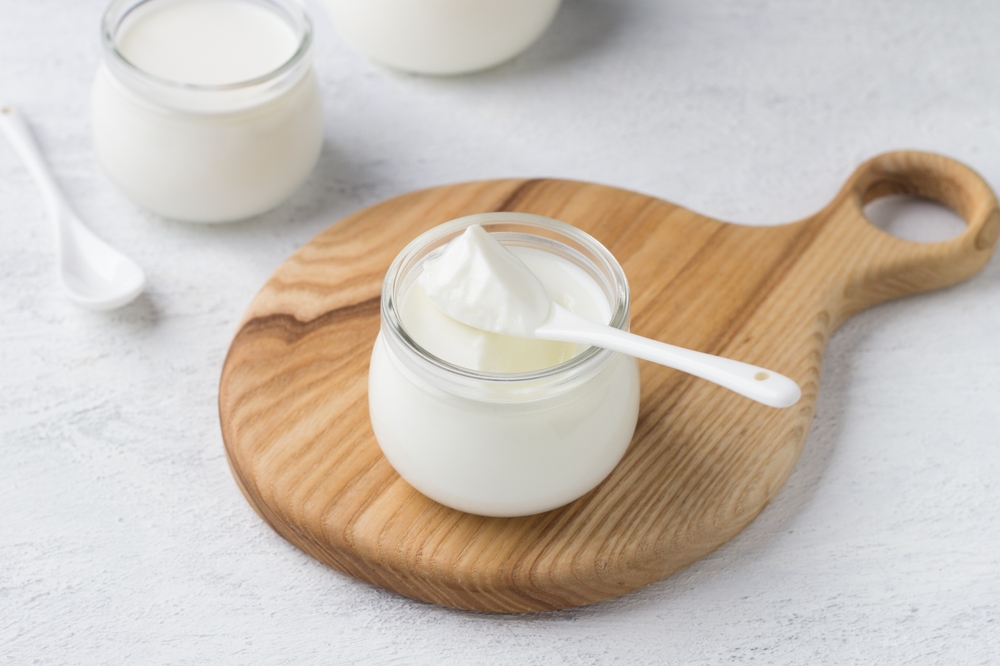
Yogurt is a dairy product produced by fermenting milk with live bacteria, typically Lactobacillus bulgaricus and Streptococcus thermophilus. This fermentation process results in a creamy texture and a tangy flavor. Regular consumption of yogurt can introduce beneficial probiotics into the digestive system, promoting a balanced gut microbiome. Additionally, yogurt is a good source of calcium and protein, essential nutrients for bone health and muscle maintenance. Opting for plain, unsweetened varieties ensures maximum health benefits without added sugars.
Kefir
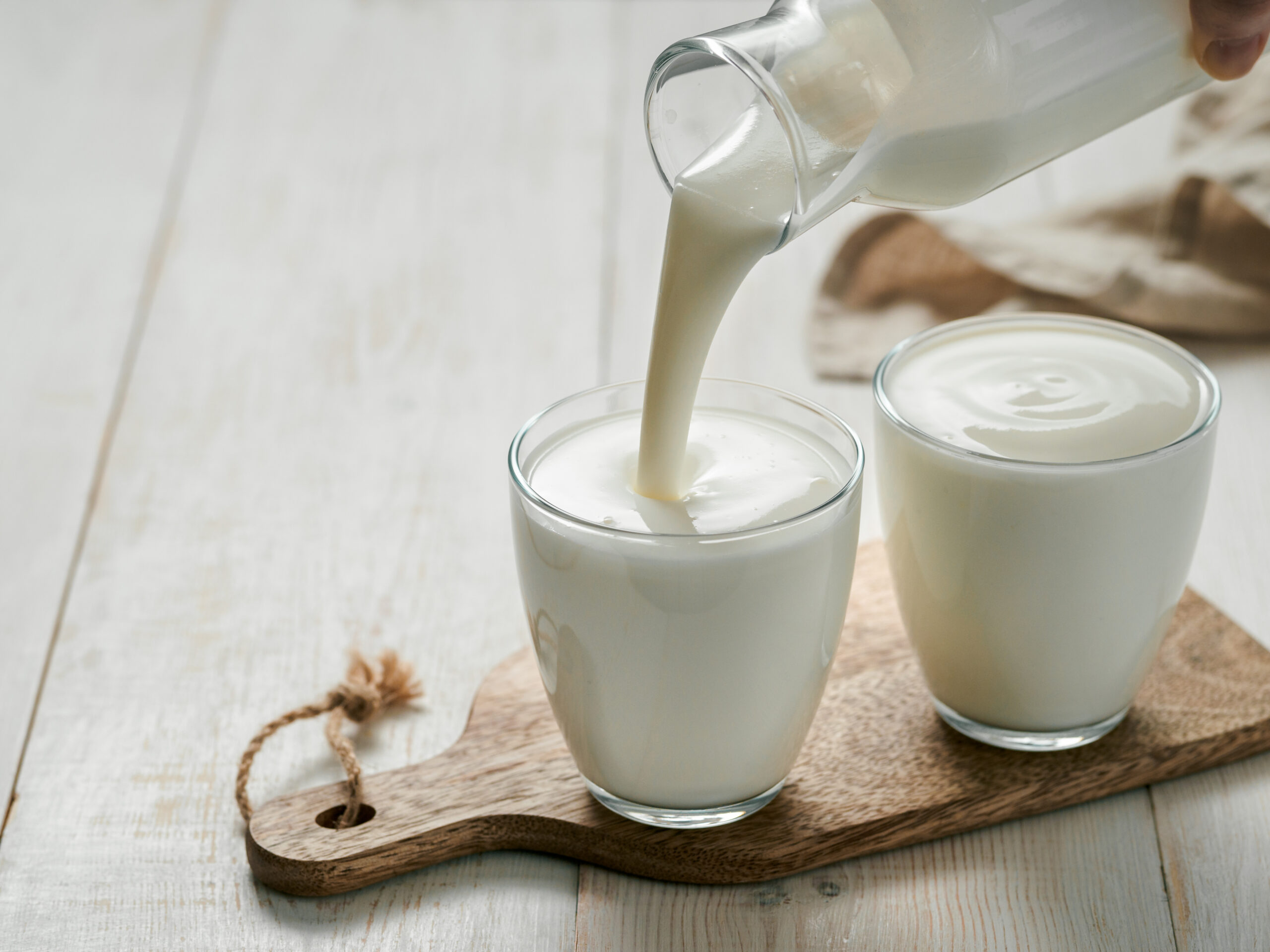
Kefir is a fermented milk drink made by adding kefir grains—a combination of bacteria and yeast—to milk. This results in a slightly effervescent beverage rich in probiotics, including Lactobacillus kefiri, which can help balance gut bacteria. Kefir is also a good source of calcium, protein, and B vitamins. Its thinner consistency compared to yogurt makes it suitable for drinking on its own or adding to smoothies. For those with lactose intolerance, kefir may be more tolerable due to its lower lactose content.
Sauerkraut
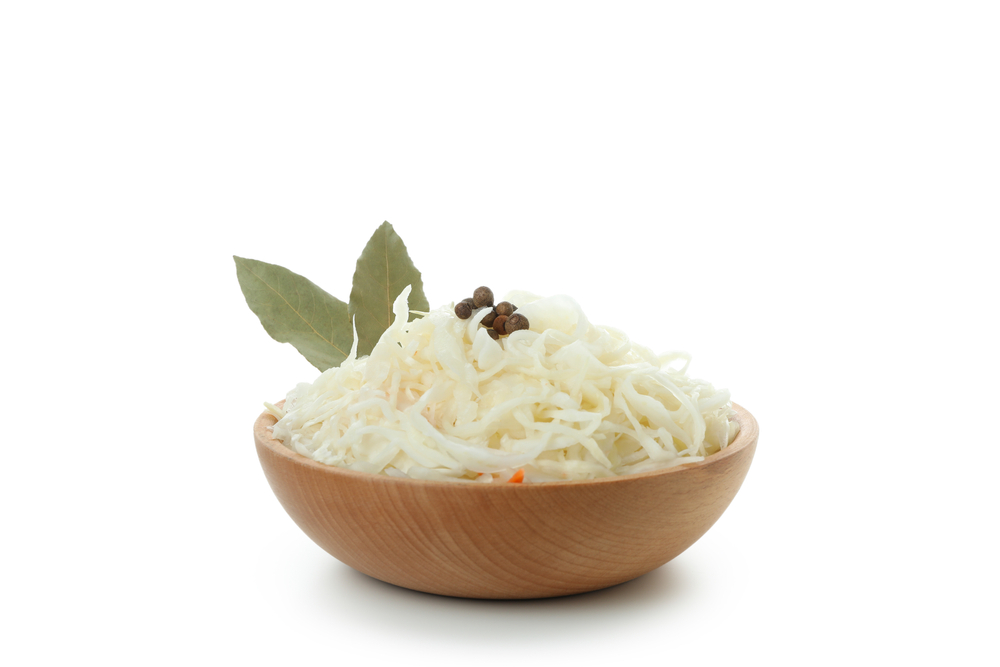
Sauerkraut is finely shredded cabbage that has undergone lactic acid fermentation. This process not only preserves the cabbage but also enriches it with probiotics beneficial for gut health. Sauerkraut is low in calories yet high in fiber, vitamins C and K, and iron. Including sauerkraut in your diet can aid digestion and support immune function. To reap the probiotic benefits, choose unpasteurized sauerkraut, as pasteurization can destroy beneficial bacteria.
Kimchi
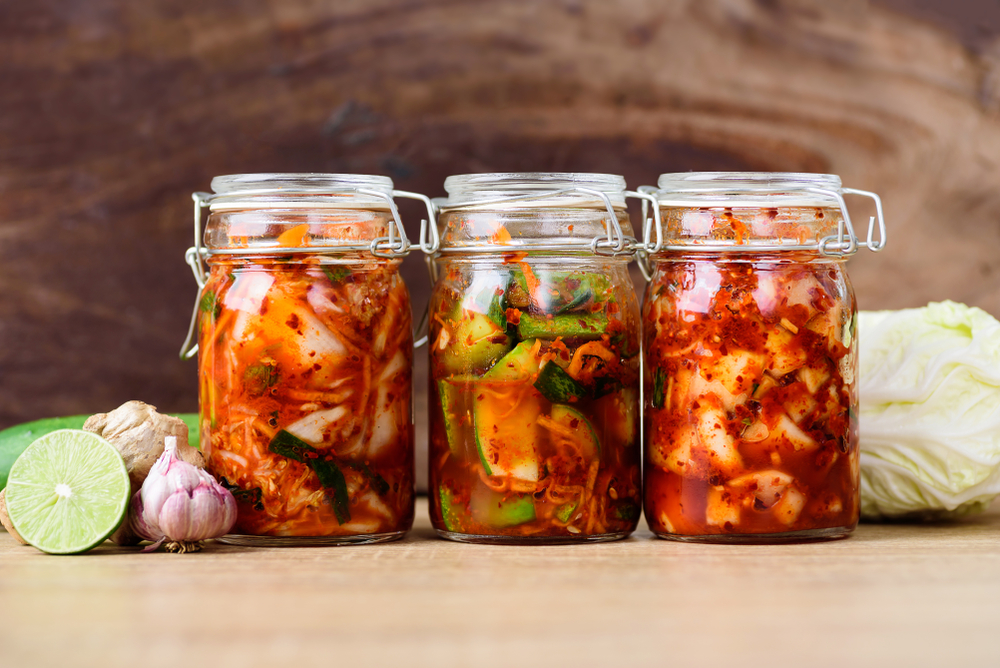
Kimchi is a traditional Korean dish made from fermented vegetables, primarily napa cabbage and radishes, seasoned with chili pepper, garlic, ginger, and fish sauce. The fermentation process produces probiotics like Lactobacillus kimchii, which can enhance gut health. Kimchi is also rich in vitamins A, B, and C, as well as antioxidants. Regular consumption may aid digestion, boost immunity, and provide anti-inflammatory benefits. Its spicy and tangy flavor makes it a versatile addition to various dishes.
Miso
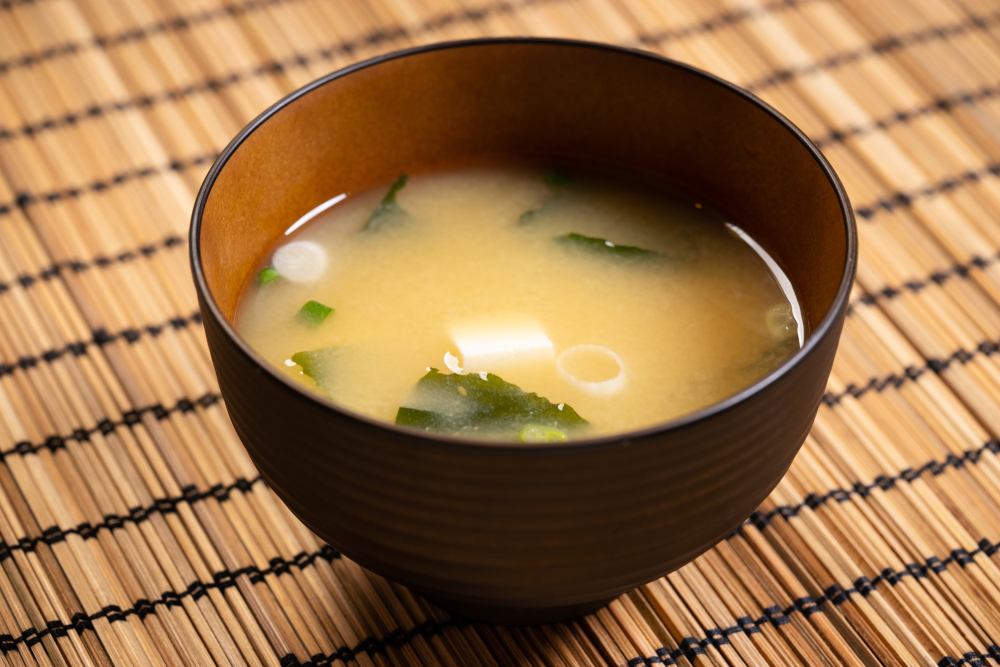
Miso is a Japanese seasoning produced by fermenting soybeans with salt and the fungus Aspergillus oryzae. This results in a thick paste used in soups, marinades, and dressings. Miso is rich in probiotics, particularly A. oryzae, which can support digestive health. It also provides essential nutrients like protein, fiber, and various vitamins and minerals. Incorporating miso into your diet can enhance gut flora diversity and contribute to overall well-being.
Tempeh

Tempeh is a fermented soybean product originating from Indonesia. Whole soybeans are fermented with the fungus Rhizopus oligosporus, resulting in a firm, cake-like product. Tempeh is rich in probiotics, protein, and fiber, making it a nutritious meat alternative. The fermentation process also reduces antinutrients in soybeans, enhancing mineral absorption. Its nutty flavor and firm texture make it suitable for various culinary applications.
Natto
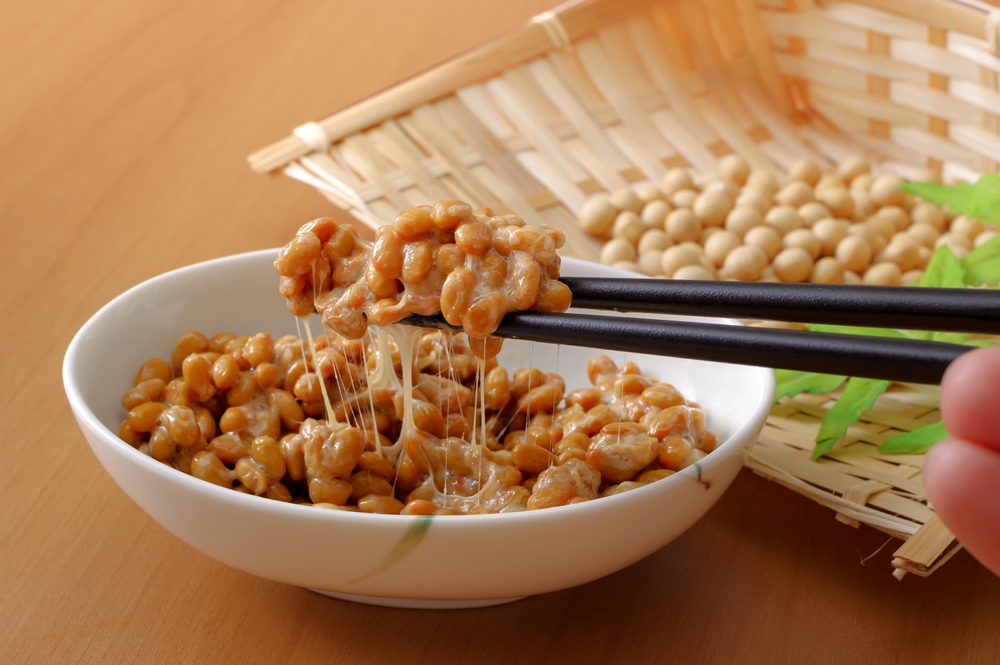
Natto is a traditional Japanese food made from fermented soybeans using the bacterium Bacillus subtilis. It has a distinctive strong flavor and sticky texture. Natto is rich in probiotics, particularly Bacillus subtilis, which can support gut health. It is also a good source of protein, vitamins K2 and B2, and minerals like iron and calcium. Regular consumption may aid digestion, support bone health, and provide cardiovascular benefits.
Kombucha
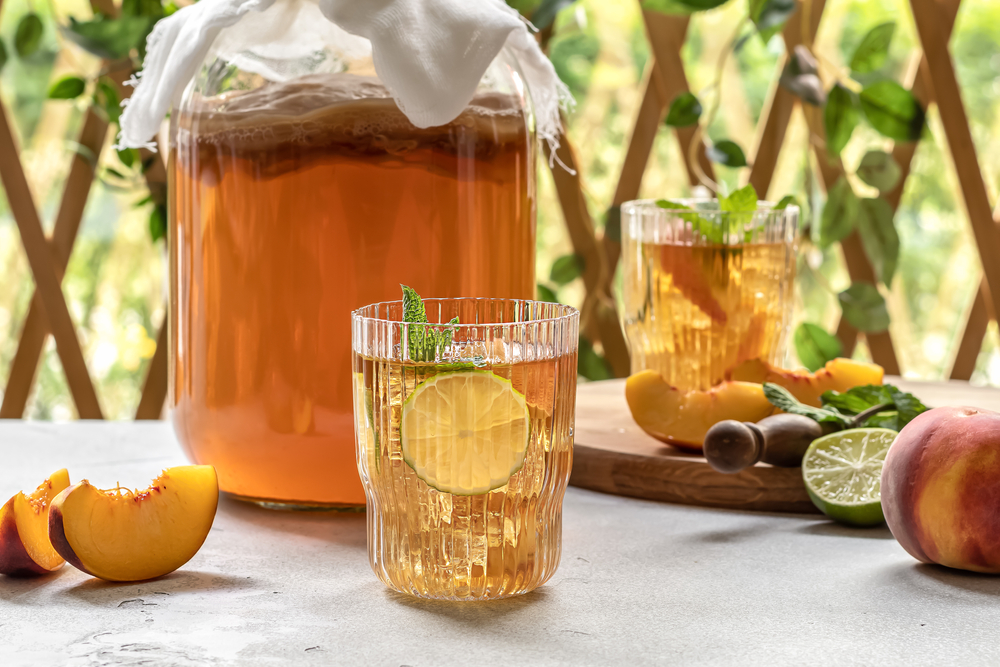
Kombucha is a fermented tea beverage made by fermenting sweetened black or green tea with a symbiotic culture of bacteria and yeast (SCOBY). This fermentation process produces a slightly effervescent drink rich in probiotics, organic acids, and antioxidants. Kombucha consumption can introduce beneficial bacteria into the gut, supporting digestive health. It also provides B vitamins and may aid in detoxification. However, it’s important to consume kombucha in moderation due to its acidity and potential sugar content.
Pickles (Fermented)

Fermented pickles are cucumbers that have been fermented in a brine solution of water and salt, allowing naturally occurring bacteria to ferment the sugars. This process produces probiotics beneficial for gut health. Fermented pickles are low in calories and provide vitamin K and antioxidants. Including them in your diet can aid digestion and support immune function. Ensure you choose naturally fermented pickles without vinegar to obtain probiotic benefits.
Kvass
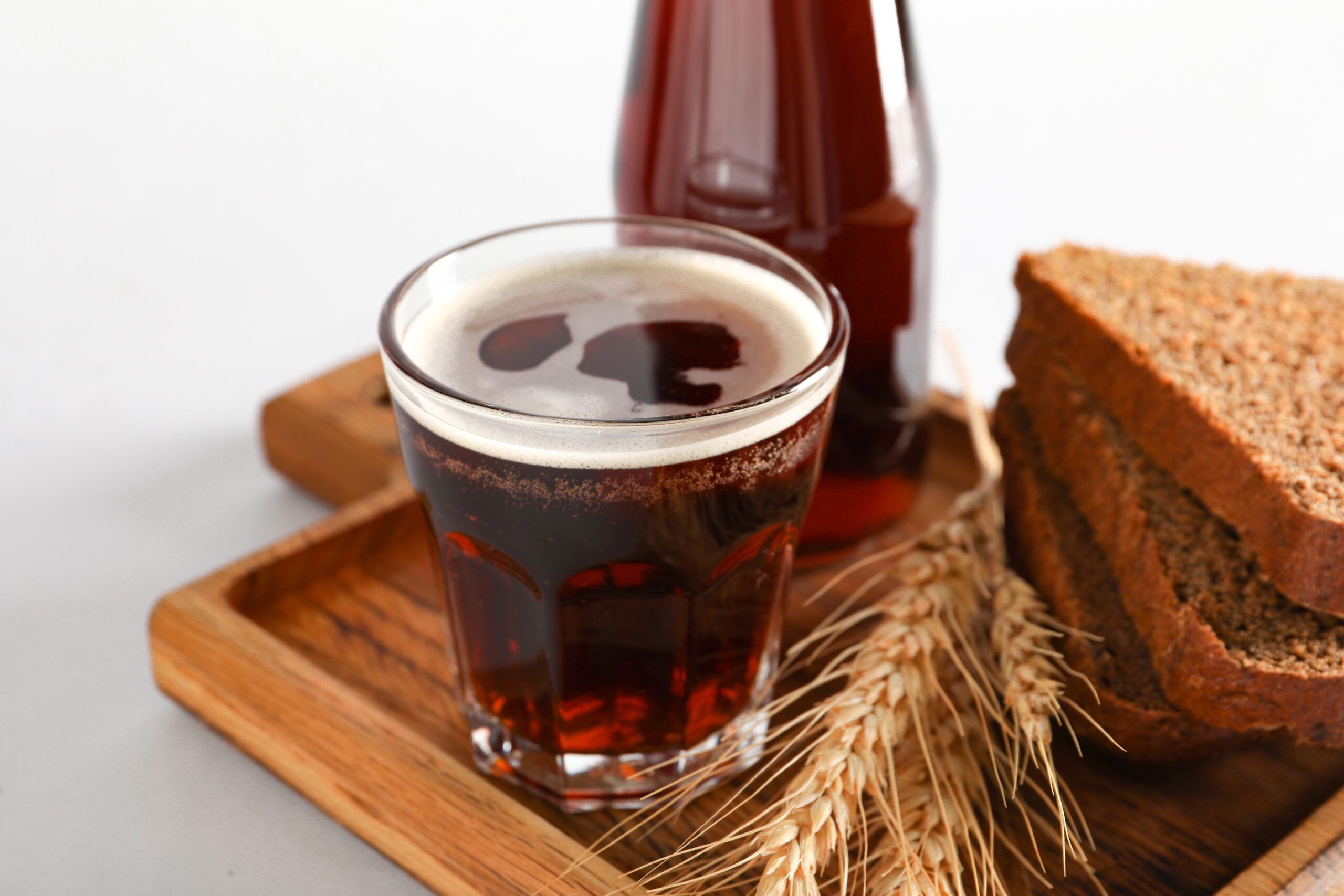
Kvass is a traditional Eastern European fermented beverage made from rye bread or beets. The fermentation process produces a slightly sour, mildly alcoholic drink rich in probiotics. Kvass contains beneficial bacteria that can support gut health and aid digestion. It also provides B vitamins and antioxidants. Including kvass in your diet can diversify your probiotic intake and contribute to overall well-being.
Lassi
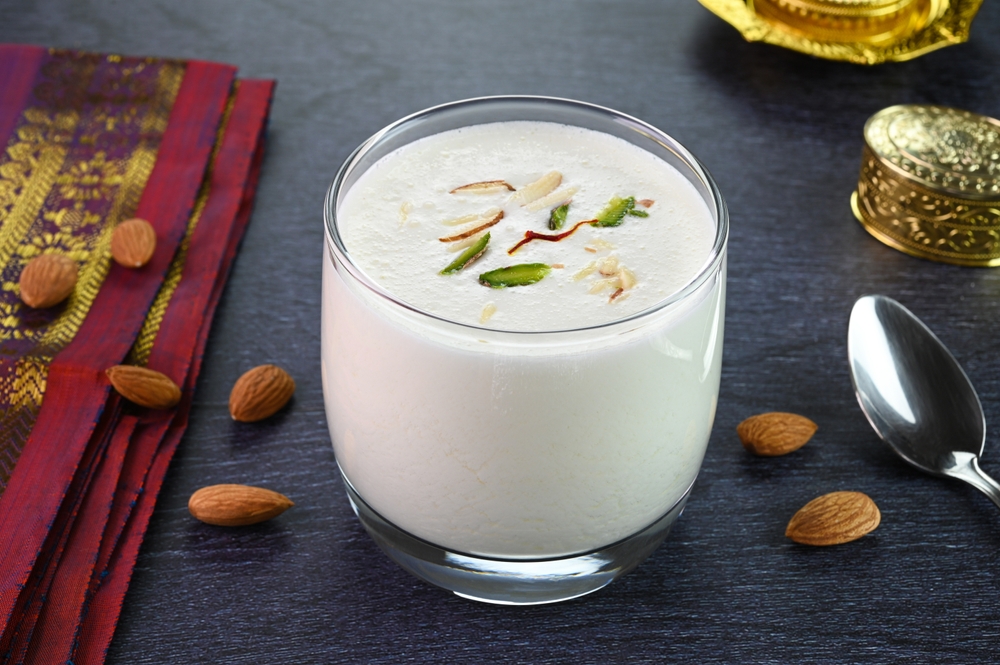
Lassi is a traditional Indian yogurt-based drink, often flavored with spices or fruit. The fermentation of yogurt introduces probiotics beneficial for gut health. Lassi is also a good source of calcium, protein, and vitamins B2 and B12. Consuming lassi can aid digestion, especially when taken with meals, and support immune function. Its refreshing taste makes it a popular choice in warm climates.
Idli
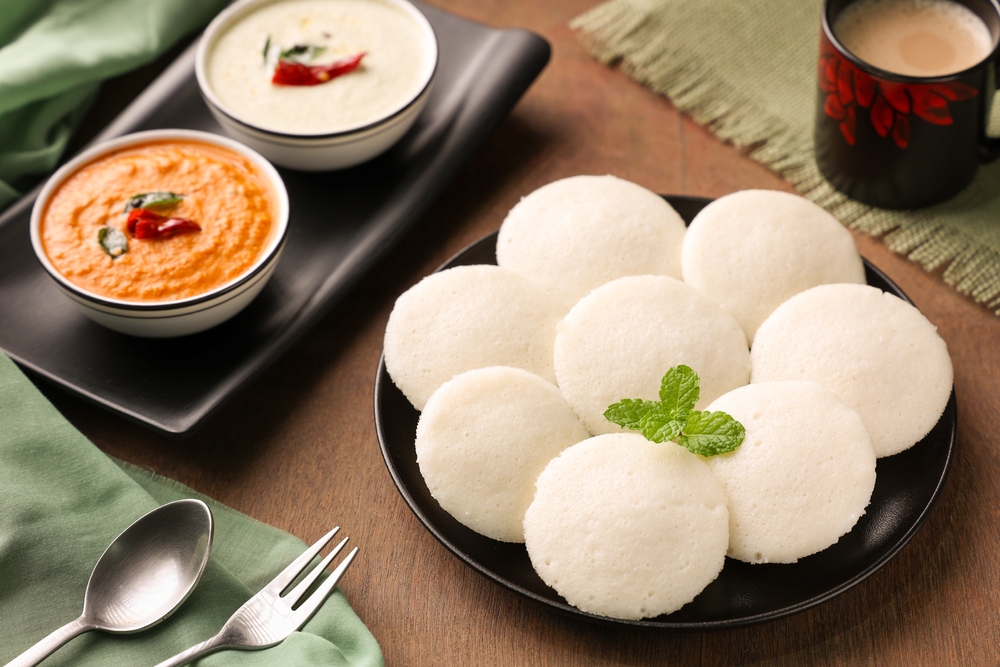
Idli is a traditional South Indian steamed cake made from fermented rice and black gram (urad dal) batter. The fermentation process enhances the bioavailability of nutrients and introduces beneficial bacteria, making idli a gut-friendly food. Idli is low in fat and provides a good source of protein, fiber, and essential minerals like iron. Including idli in your diet can support digestive health and improve nutrient absorption. Its light and fluffy texture makes it an easily digestible option for breakfast or snacks.
Rejuvelac
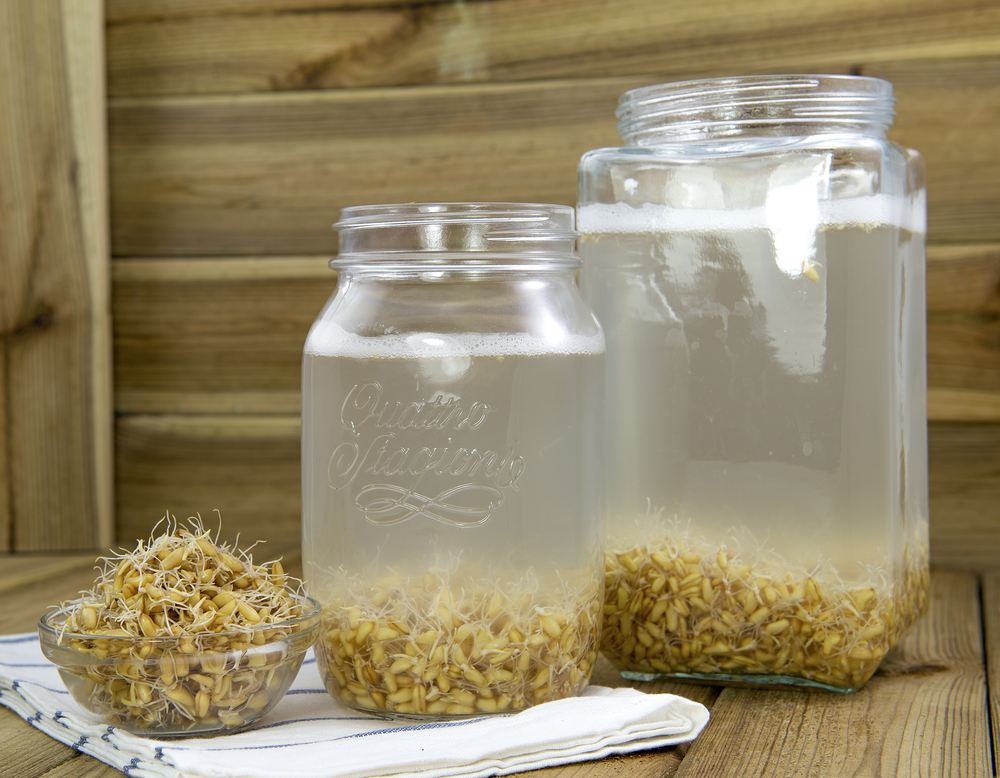
Rejuvelac is a fermented beverage made by soaking sprouted grains such as wheat, rye, or barley in water. This drink is rich in probiotics, particularly Lactobacillus and other lactic acid bacteria that benefit gut health. Rejuvelac also contains enzymes that can aid in digestion and improve nutrient absorption. It has a tangy flavor and can be used as a base for other probiotic drinks or added to smoothies. Regular consumption of Rejuvelac can support gut flora balance and promote a healthy digestive system.
Sourdough Bread
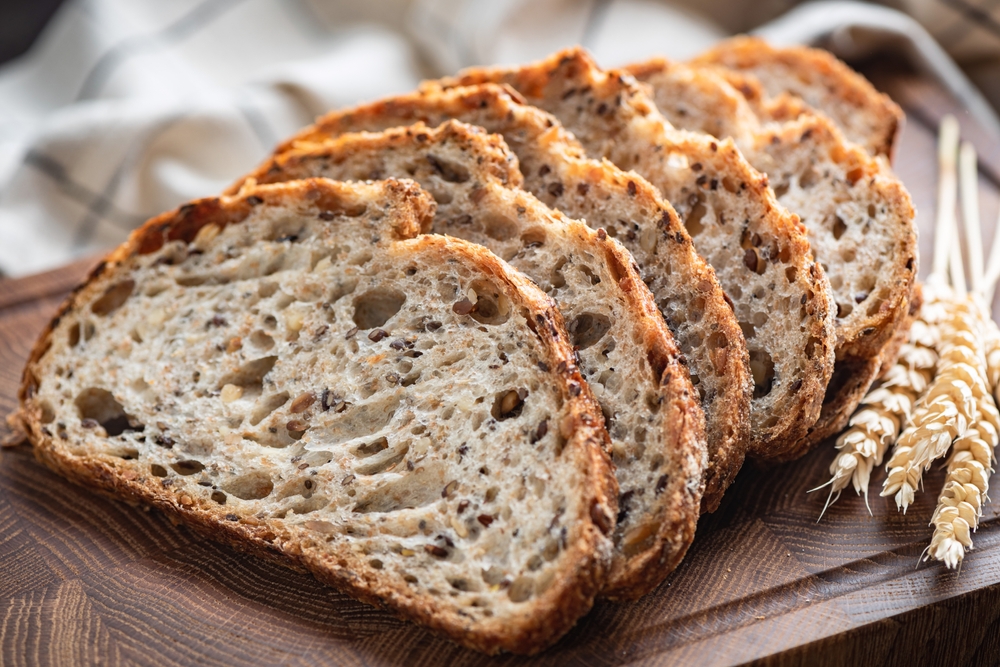
Sourdough bread is made by fermenting flour and water with naturally occurring wild yeast and lactic acid bacteria. The fermentation process breaks down gluten, making sourdough easier to digest than conventional bread. Sourdough bread also provides beneficial bacteria that can support gut health and improve the absorption of minerals like zinc and iron. This type of bread has a slightly tangy taste and chewy texture, making it a flavorful choice for sandwiches and toast.
Apple Cider Vinegar
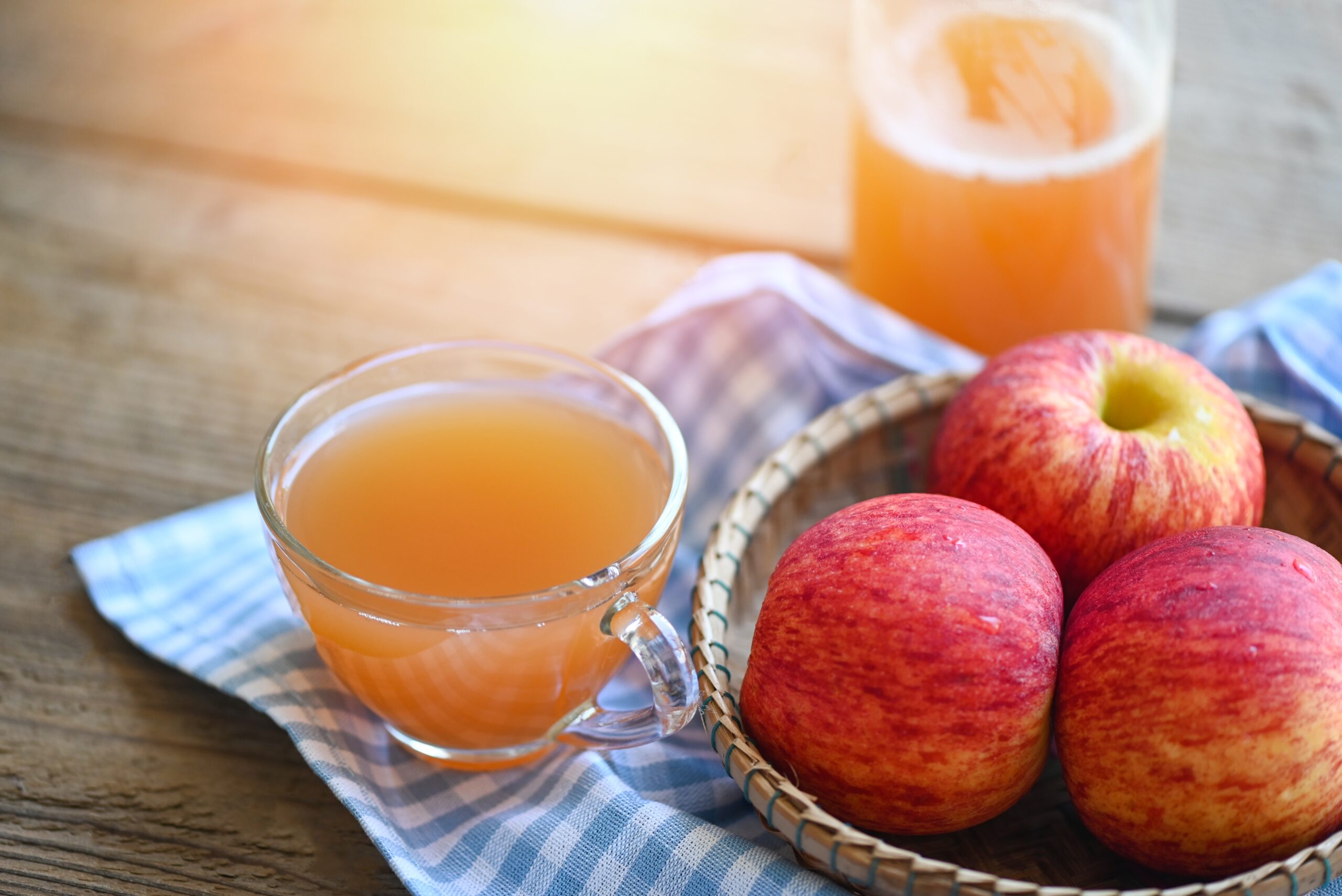
Apple cider vinegar (ACV) is produced by fermenting crushed apples with yeast and bacteria, creating a probiotic-rich liquid. ACV contains acetic acid, which can aid digestion by promoting the growth of beneficial gut bacteria and inhibiting harmful pathogens. In addition to probiotics, apple cider vinegar is rich in antioxidants and may help regulate blood sugar levels. It can be consumed diluted in water or used as a salad dressing for a flavorful, gut-friendly addition to meals.
This article originally appeared on RetailShout.
More From RetailShout
The 10 Best Bettergoods Ice Creams to Try from Walmart
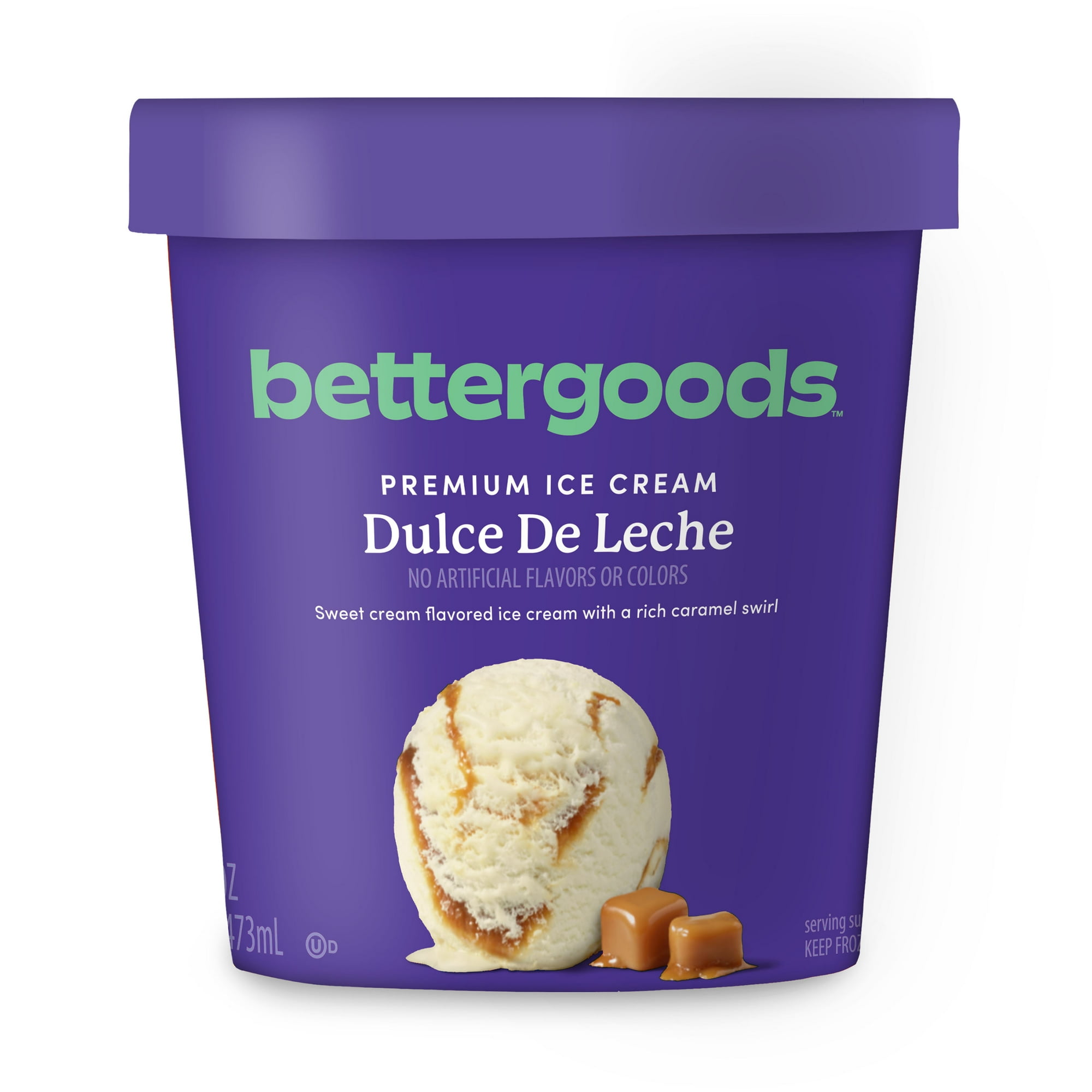
Nothing beats that first bite of creamy, dreamy ice cream when you’re in the mood for a treat, right? Bettergoods at Walmart has some of the best flavors out there, from classic options like chocolate and vanilla to unique plant-based choices like salted caramel oatmilk. Read More.
14 Historic Hotels with Renowned Restaurants Across the US

Historic hotels offer more than just a place to stay; they provide a glimpse into the past while housing some of the finest dining experiences in the country. From classic American cuisine to innovative farm-to-table dishes, these hotels feature renowned restaurants that reflect their unique locales and histories. Read More.
14 Retro Appetizers Perfect for Modern Parties

Retro appetizers have a way of bringing back the charm of past decades while adding a playful, nostalgic touch to any modern gathering. These bite-sized treats offer a blend of timeless flavors and updated twists that can transport guests back to classic cocktail parties and family celebrations. Read More.

